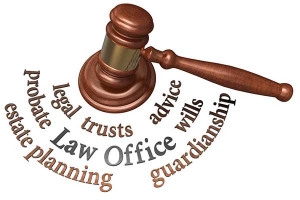
Preparing an estate plan requires you to consider what you would want to happen under a variety of different circumstances. Many people find this process difficult – and understandably so. While most people need to address the same overarching issues during the estate planning process (e.g., distributing their assets, planning for incapacity, and mitigating the risk of disputes among family members), parents with minor children have certain special estate planning needs as well.
What would happen to your children if you were to die unexpectedly? Without an estate plan, the answer is not straightforward. Your children will need to have a guardian appointed for them through the probate process. And in addition to taking time (which leaves your children without a permanent guardian in the interim), this also means that a judge will have the final say in determining who will raise your children. If your family members disagree over who should serve as your children’s guardian, this can lead to contentious disputes and additional costs and delays that are unlikely to truly be in the best interests of anyone involved.
Notice: Please note that Rebeccah Beller is a Florida attorney specializing in guardianship matters in the state of Florida. Our legal team only handles guardianships within Florida and cannot provide assistance for cases outside of this jurisdiction.
Three Key Considerations for Protecting Your Minor Children in Your Estate Plan
Fortunately, all of these issues can be avoided with thoughtful – and fairly simple – estate planning. For most parents, the process involves three key considerations:
1. Choosing and Appointing a Guardian (and a Contingent Guardian)
When choosing someone to raise your children in the event that you (and your spouse or partner) die before your children reach age 18, the person who serves in this role is legally referred to as your children’s “guardian.” While it is possible to have a guardian selected through probate, parents can also prospectively choose guardians for their children during the estate planning process. As discussed above, there are a number of reasons why this latter option is far more desirable under virtually all scenarios.
Although the hope, of course, is that the guardianship provisions of your estate plan never need to be exercised, planning for your children’s protection is nonetheless a matter to be taken very seriously. This means that you should think very carefully about who you choose to appoint as your children’s guardian, and you should make sure that your chosen guardian understands the responsibilities involved and is willing to take them on, if necessary.
Once you decide who you want to serve as your children’s guardian, you should speak with him or her before you finalize your estate plan. Discuss parenting styles and philosophies, ensuring that your chosen guardian can meet your children’s needs while also maintaining his or her career and lifestyle, and making sure your chosen guardian knows what to do in the event that he or she needs to step into the parenting role. Also, be sure to let your chosen guardian know that declining is an option. If he or she isn’t comfortable, then you should generally choose someone else.
When addressing guardianship in your estate plan, it is important to identify a contingent guardian as well. This is essentially a “backup” in case your first choice is unavailable or decides that he or she is unwilling to assume responsibility (which, despite parents’ best efforts, does happen). Similar to your primary guardian, your contingent guardian should be aware of all that is involved, and he or she should be willing and able to serve in the role.
2. Providing for Your Child’s (or Children’s) Long-Term Financial Needs
In addition to appointing a guardian to care for your children, it is also necessary to plan for your children’s long-term financial needs. Various factors are involved in deciding the most appropriate way to address this, from your children’s age, educational, and health care needs to your own current financial standing.
For many (but certainly not all) parents, a revocable living trust will be the right tool for the job. A revocable living trust is an estate planning tool that allows parents to leave assets to their children while also: (i) avoiding probate; and, (ii) determining how and when assets held in the trust should be used. For example, a fairly common approach involves:
- Providing the trustee (the individual appointed in the trust documents to manage and oversee the trust) with appropriate discretion to use trust assets to meet the children’s financial needs while they are minors; and,
- Specifying an age at which the children will be entitled to withdraw assets from the trust without the trustee’s oversight.
However, there are various permutations of this approach, and there are numerous alternative approaches. Revocable living trusts provide a significant amount of flexibility during the estate planning process, and this is why they have become a popular choice for parents of all ages and financial conditions.
3. Providing Financial Assistance for Your Chosen Guardian (if Desired)
Finally, in addition to planning to meet their children’s financial needs, some parents will find it desirable to provide financial assistance to their chosen guardians as well. Here, too, there are several options available, from providing a lump-sum gift that the guardian can use as he or she wishes to establishing a trust of which the guardian is a beneficiary. While not all parents will find this necessary (or feasible), many find it comforting to know that they are limiting their chosen guardian’s financial burden as much as possible.
Speak with an Estate Planning and Guardianship Lawyer in Confidence
If you have questions about incorporating guardianship provisions into your estate plan, we encourage you to contact us for a confidential initial consultation. To speak with an attorney at Beller Law, P.L., in confidence, call us at 904-288-4414 or inquire online today.
